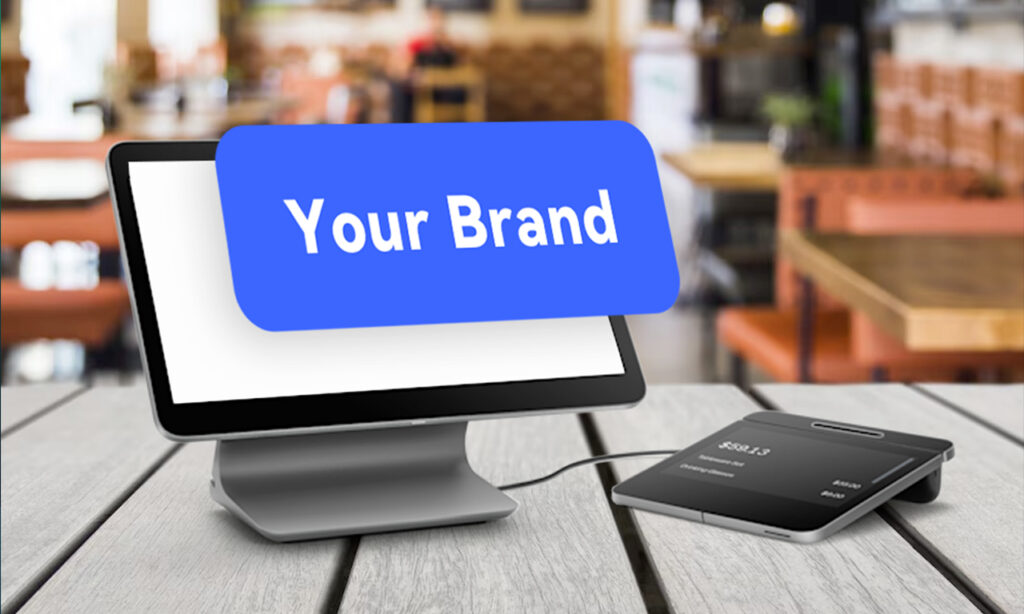When it comes to running a business, efficiency and adaptability are key. A custom POS (Point of Sale) system can be a game-changer, offering tailored features to meet your unique needs.
What is a Custom POS System?
A custom POS system is a point-of-sale solution designed specifically for a business’s requirements, unlike off-the-shelf POS software that offers generic features. Whether you run a retail store, restaurant, or service-based business, a custom POS can be tailored to streamline operations, enhance customer experiences, and boost profitability.
Key Difference: Standard POS systems provide a one-size-fits-all approach, while custom POS systems are built to address specific workflows, industries, or customer demands.
Examples: A custom POS for a restaurant might include table management and menu customization, while one for a retail store might focus on inventory tracking and loyalty programs.
Benefits of Custom POS Systems
Why choose a custom POS over a standard one? Here are the top advantages:
Tailored Functionality: Get features that align perfectly with your business model, eliminating unnecessary tools and adding what you truly need.
Improved Efficiency: Automate repetitive tasks, reduce manual errors, and save time with a system designed for your workflows.
Scalability: As your business grows, a custom POS can evolve with new integrations or modules, ensuring long-term value.
Enhanced Customer Experience: Offer faster checkouts, personalized promotions, or seamless online-offline integration to keep customers happy.
Competitive Edge: Stand out in your industry with a system that gives you an advantage over competitors using generic solutions.

Top Features to Look for in a Custom POS System
When designing or choosing a custom POS, consider including these essential features:
Inventory Management: Track stock levels in real-time and receive low-stock alerts.
Custom Reporting: Generate detailed sales, employee, or customer reports tailored to your goals.
Integration Capabilities: Connect with accounting software (e.g., QuickBooks), e-commerce platforms, or payment gateways.
User-Friendly Interface: Ensure staff can learn and use the system quickly with minimal training.
Mobile Access: Manage your business on the go with cloud-based or mobile-compatible POS solutions.
Industry-Specific Tools: For example, appointment scheduling for salons or recipe tracking for restaurants.
How Custom POS Systems Differ Across Industries
Custom POS systems shine because they adapt to specific industries. Here’s how they vary:
Retail: Focus on inventory, barcode scanning, and loyalty programs.
Restaurants: Emphasize table layouts, order modifications, and kitchen integration.
Service-Based Businesses: Prioritize appointment booking, client management, and recurring billing.
By addressing your industry’s unique challenges, a custom POS ensures you’re not stuck with irrelevant features or missing critical ones.
How Much Does a Custom POS Cost?
The cost of a custom POS system depends on several factors:
Development: Custom-built solutions can range from $5,000 to $50,000+, depending on complexity.
Subscription Models: Many providers offer monthly plans ($50–$500/month) with customization options.
Hardware: Add $500–$2,000 for terminals, scanners, or receipt printers.
While custom POS systems may have a higher upfront cost than standard options, their long-term benefits often outweigh the investment.

How to Choose the Right Custom POS for Your Business
Ready to implement a custom POS? Follow these steps:
Identify Your Needs: List the features your business can’t live without.
Research Providers: Look for vendors with experience in your industry and strong customer reviews.
Request Demos: Test the system to ensure it’s intuitive and meets your requirements.
Consider Scalability: Choose a solution that can grow with your business.
Evaluate Support: Opt for providers offering 24/7 customer support and regular updates.
Tips to Maximize Your Custom POS Investment
Once you’ve implemented your system, make the most of it:
Train Your Staff: Ensure everyone knows how to use the system effectively.
Leverage Data: Use custom reports to make informed decisions about inventory, pricing, or promotions.
Stay Updated: Regularly update the software to access new features and security patches.
Why Custom POS Systems Are Worth It
A custom POS system is more than just a tool—it’s a strategic asset that can transform how you operate. By offering flexibility, efficiency, and a personalized approach, it helps you meet customer demands and stay ahead of the competition. Whether you’re a small business or a growing enterprise, investing in a custom POS can deliver measurable results.


